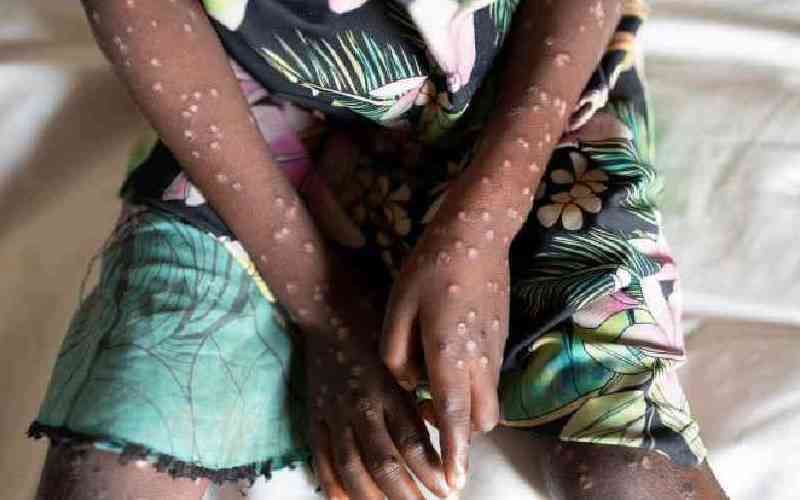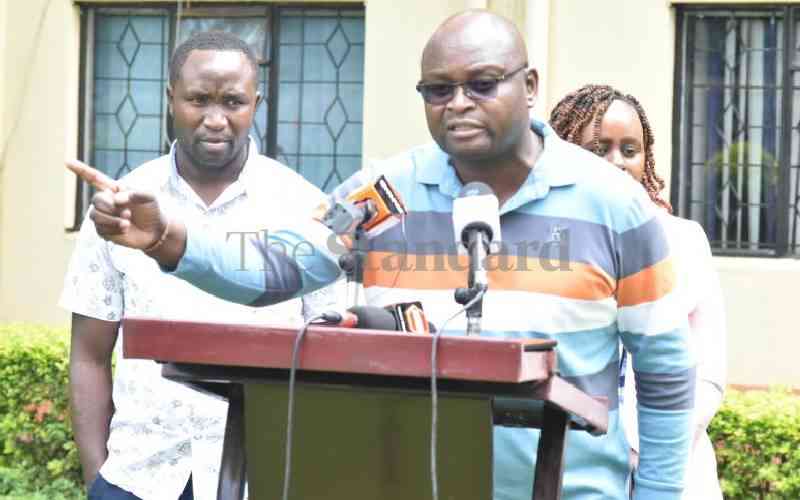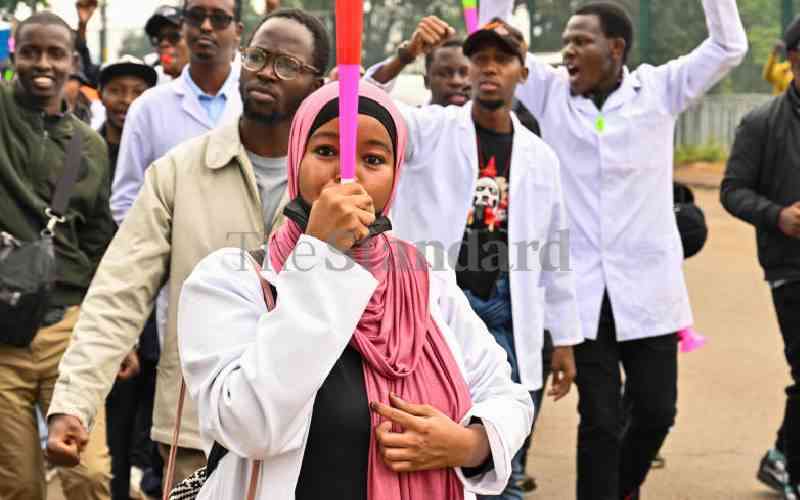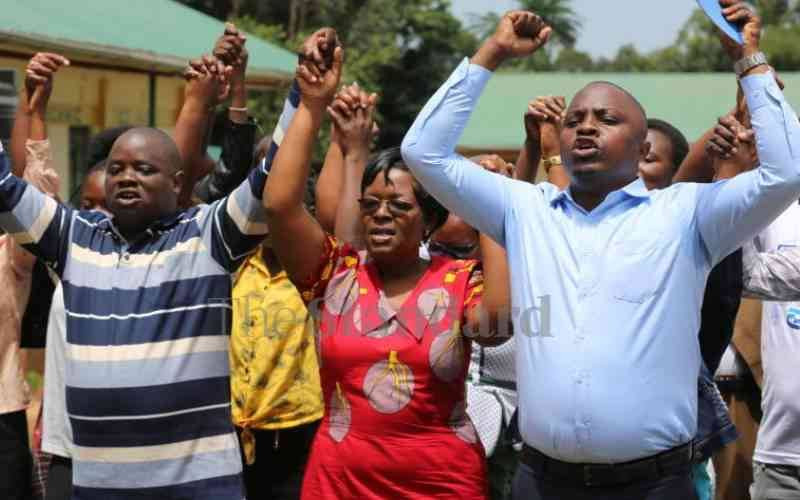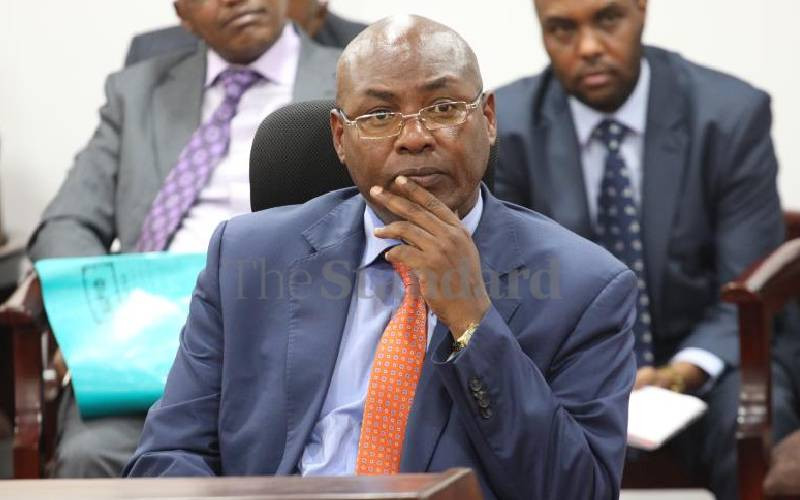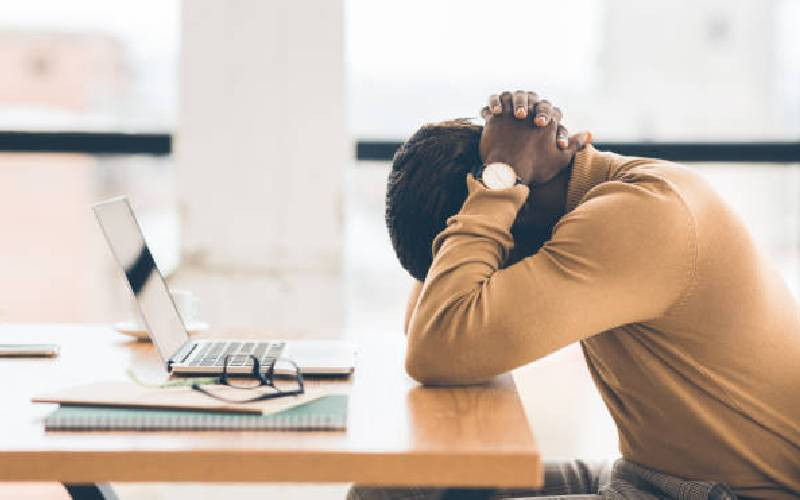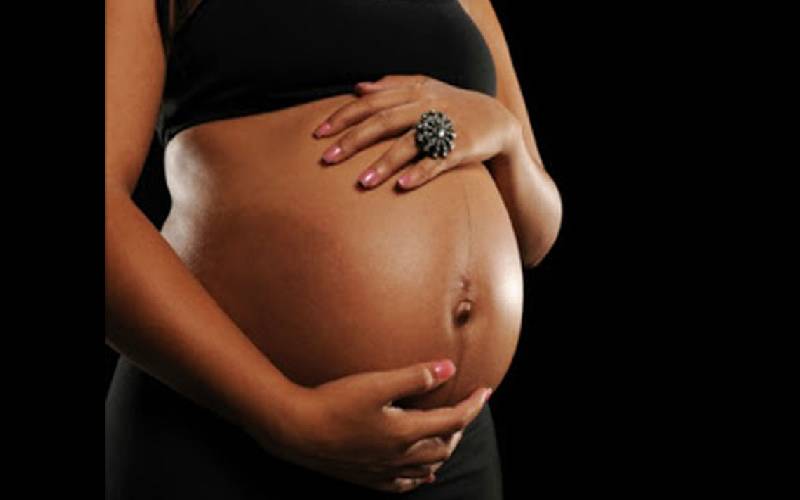
The last time Beryl Oketch, 29, attended a gathering with her in-laws in April last year, her childlessness was widely discussed.
“I was barely seated when my husband’s aunt asked why I had not brought a child along. She couldn’t stop questioning my childlessness. I held back my tears and didn’t utter a word until the meeting ended,” she says.
It was not the first time she was made to explain why she had not given birth years after she got married. She has fallen out with friends, blocked some on social media and stopped going to church when a member told her in her face that she was not praying hard enough.
She moved in with her husband Richard Oketch in 2015 and lived together for a year before they had a wedding in church. They had agreed on having children immediately. That had never happened.
For three years, they have tried to conceive without success.
They sought medical intervention last year after she suffered two miscarriages.
A scan revealed she had cysts that had damaged her left ovary and Fallopian tube. The right ovary was also blocked. Medics prescribed a surgery to remove the damaged ovary and Fallopian tube, leaving her with the blocked one. They recommended in vitro fertilisation (IVF), a process involving fertilisation and implantation of the egg in the uterus. This idea didn’t sit well with Mrs Oketch. She believes she will conceive naturally.
No resources
She spent Sh700,000 on the operation to remove her damaged reproductive organs and doesn’t have resources to go through IVF, which costs almost the same amount.
In her desperation, she went as far as consulting traditional healers.
“A herbalist sold me some liquid to cleanse my womb. I was told to lick it from the floor daily. I did this for six months but nothing happened,” she says.
Another healer prescribed bathing in a strong concoction whose leaves she was not supposed to rinse off. She did all this before she went to hospital where her infertility was linked to the damaged Fallopian tubes.
Mrs Oketch says she didn’t have prior knowledge of her medical condition when she sought intervention of traditional healers.
“Sometimes I sank so deep. When you are desperate, you can easily get manipulated,” she says.
She says her condition has had a toll on her husband, who finds it hard to express his feelings to her.
“I can see the pain in his eyes. It has even affected our relationship and we rarely get intimate,” Mrs Oketch says.
She adds: “I feel we are missing on an important thing that unites us. I have tried to make him understand that the act isn’t just about conceiving.”
Mr Oketch, 32, says he is frustrated.
“I find no need in performing a sexual act that won’t bear any fruit. It hurts me to think that our intimacy will never result in us getting a child,” he says.
The accountant at an NGO in Kisumu, who also plays football, however swears to stick by his wife through thick and thin.
“My wife is aware that we are in this together. This way, we have been able to stand against anyone that comes against us. When she felt uncomfortable around my family, I decided to stand by her. But we are working towards meeting both our families to make everybody understand our situation and accept us the way we are,” he says.
Oketch is also weighing in on adoption.
Mrs Oketch is grateful to have a supportive network around her.
She is a member of ‘Waiting Wombs Trust’, an online platform that instills hope and coping mechanisms in childless individuals and couples.
Waiting Wombs Trust founder Hadassa Editah was inspired to create the platform from a personal experience.
“I have been married for 12 years and I have been waiting for a child all the while. Mine is a medical problem since I was diagnosed with endometriosis after I went through a lot of frustrations for lack of a child. It hit me that I wasn’t alone in this struggle and so I thought of creating a platform where people in a similar situation could at least open up about what they were going through,” Editah says.
The platform organises for women’s conferences, couples retreats and has an online presence where more than 10,000 people have prescribed for membership.
“I have found home on that platform. There, I feel more loved and accepted by strangers than I feel about people I know,” says Mrs Oketch who has identified a prayer partner on the platform.
 The Standard Group Plc is a multi-media organization with investments in media platforms spanning newspaper print
operations, television, radio broadcasting, digital and online services. The Standard Group is recognized as a
leading multi-media house in Kenya with a key influence in matters of national and international interest.
The Standard Group Plc is a multi-media organization with investments in media platforms spanning newspaper print
operations, television, radio broadcasting, digital and online services. The Standard Group is recognized as a
leading multi-media house in Kenya with a key influence in matters of national and international interest.

